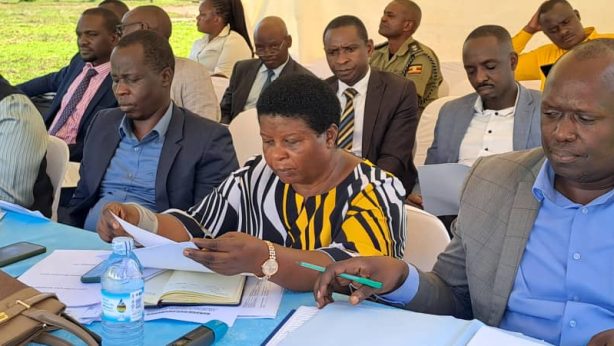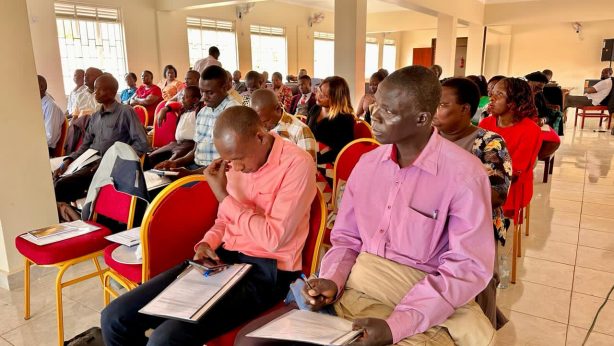Ugandan Youth Challenged to Lead in Job Creation, Responsible Parenthood
Uganda’s young people were told in no uncertain terms that the future of the nation rests on their shoulders, not just in politics, but in the choices they make about jobs, families, and innovation.
At a debate themed “Beyond the Statistics” on August 21, 2025, organised by Twaweza, the Media Challenge Initiative (MCI), and the Africa Freedom of Information Centre (AFIC), Assistant Commissioner for Youth and Children’s Affairs, Mondo Kyateka, set the tone with a hard truth: poverty remains the root cause of most societal challenges.
“Poverty is the worst form of violence,” Kyateka quoted, adding, “As long as poverty persists, prosperity remains under threat.”
The event, a belated commemoration of International Youth Day, drew students from major universities to tackle issues of unemployment, governance, and poverty eradication.
Linking Poverty, Parenthood, and Progress
Kyateka applauded government efforts to reduce poverty rates from 21% to 19%, but warned that rapid population growth, mainly driven by unplanned pregnancies, is reversing gains.
“Forty per cent of pregnancies in Uganda are unplanned, with 60% linked to teenage pregnancy,” he said, urging youth to embrace responsible parenthood. “Produce only the number of children you can afford to raise,” he stressed, pointing to the rise in abandoned children ending up in reception centres such as Naguru.
Government’s Toolbox for Youth Empowerment
Kyateka outlined government programs designed to pull young people out of subsistence living:
- Parish Development Model (PDM): Targeting 3.5 million households to shift into a monetised economy.
- Youth Livelihood Programme (YLP): Over UGX 193.7 billion disbursed since 2013, benefiting more than 280,000 youth.
- Uganda Women Entrepreneurship Programme (UWEP), Youth Venture Capital Fund (YVC), and the GROW Programme: All aimed at strengthening economic participation.
He also emphasised Uganda’s unique constitutional guarantee for youth participation, with five parliamentary seats reserved for youth representatives and mandatory youth councillors at every level of governance.
“No country in the world has made youth participation a constitutional obligation like Uganda,” he noted, urging young people to seize the spaces already created for them.
Data, Voices, and Realities on the Ground
Adding perspective, Marie Nanyanzi, Senior Programme Officer at Twaweza, shared findings from Sauti Za Wananchi, a nationally representative survey of 3,000 Ugandans.
The survey titled “Young Ugandans’ voices: Young citizens’ views and experiences on national priorities, livelihoods and participation” revealed that young citizens point to unemployment and health services as their top concerns, both cited by 39% of respondents, closely followed by the cost of living, identified by 38%.
She emphasised that challenges vary regionally, with hunger and drought being predominant in some areas, urging policymakers to design region-specific interventions rather than one-size-fits-all policies.
Youth Voices: Hope, Frustration, and Ideas
The floor was also given to young people themselves—many with bold ideas, others voicing deep frustrations.
- Ronald Nsubuga (Mityana Municipality): Called on peers to exploit the government’s two-year tax holiday for youth-led businesses.
- Ssuubi Harriet Tiakke (Makerere, Biomedical Engineering): Urged youth to tap into grants for innovation, stressing the need to transform creativity into solutions.
- Christine Kisakye (UCU, Journalism): Advocated for collaboration and community-driven enterprises, where profit meets social good.
- Jenkins Kabuye (Makerere graduate): Pushed back against what he called “unrealistic expectations,” arguing that without major state-led investment, the call for youth to create jobs was unfair. “The UGX 72.3 trillion national budget must prioritise job creation,” he insisted.
A Call to Action
The conversation laid bare both the opportunities and contradictions facing Uganda’s youth. The government has rolled out programs and created constitutional guarantees, yet unemployment and poverty remain crushing realities. Young people themselves are torn between optimism in entrepreneurship and frustration with structural barriers.
What was clear, however, is that the way forward demands a partnership between the government and youth, with innovation, collaboration, and responsible decision-making at its core.
This post was written by Martha Chemutai, Manager, Advocacy and Engagement, Twaweza Uganda.


